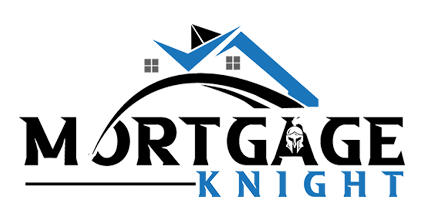How Much Deposit Do You Need for a Buy to Let Mortgage in the UK?
Investing in property has long been a popular way to generate income and build wealth. In the UK, one of the most common ways to invest in property is through a buy to let mortgage. This type of mortgage is specifically designed for individuals looking to purchase a property with the intention of renting it out to tenants. But how much deposit do you need for a buy to let mortgage in the UK? In this article, we will explore the ins and outs of buy to let mortgages and discuss the deposit requirements for this type of loan.
What is a buy to let mortgage?
A buy to let mortgage is a type of mortgage specifically designed for individuals who want to purchase a property with the intention of renting it out to tenants. Unlike a standard residential mortgage, which is designed for homeowners who will live in the property, a buy to let mortgage takes into account the fact that the property will be used as an investment rather than as a primary residence.
The main difference between a buy to let mortgage and a standard residential mortgage is the way in which the lender assesses the borrower’s affordability. With a buy to let mortgage, the lender will typically look at the rental income that the property is expected to generate in order to determine whether the borrower can afford the loan. This is in contrast to a residential mortgage, where the lender assesses the borrower’s income and expenses to determine affordability.
Deposit requirements for a buy to let mortgage
One of the key considerations when taking out a buy to let mortgage is the deposit requirement. The deposit is the initial lump sum that the borrower must put towards the property when purchasing it. In the UK, the deposit requirements for a buy to let mortgage are typically higher than those for a standard residential mortgage.
While the deposit requirements for a buy to let mortgage can vary depending on the lender and the specific circumstances of the borrower, it is common for lenders to require a deposit of at least 25% of the property’s value. In some cases, lenders may require an even higher deposit, particularly for first-time landlords or for properties in certain areas or with certain characteristics.
For example, if you were looking to purchase a buy to let property worth £200,000, you would typically need a deposit of at least £50,000 in order to secure a mortgage. However, it is important to note that the exact deposit requirement will depend on a range of factors, including the value of the property, the borrower’s financial circumstances, and the lender’s specific criteria.
Why do lenders require a higher deposit for buy to let mortgages?
The reason why lenders typically require a higher deposit for buy to let mortgages is because these types of loans are considered to be higher risk than standard residential mortgages. When a property is purchased with the intention of renting it out, there is a greater risk that the borrower may default on the loan, particularly if they struggle to find tenants or if the rental income is lower than expected.
By requiring a higher deposit, lenders can reduce their risk and ensure that the borrower has a significant financial stake in the property. This can provide reassurance to the lender that the borrower is committed to the investment and is less likely to default on the loan.
In addition, requiring a higher deposit can also help to protect the lender in the event that property prices fall. If the borrower defaults on the loan and the property needs to be repossessed and sold, having a higher deposit can provide a buffer against any potential losses for the lender.
How Mortgage Knight can help with your buy to let mortgage needs
If you are considering investing in buy to let property in the UK, the team at Mortgage Knight can help you navigate the complex world of buy to let mortgages and find the right financing solution for your needs. With our expert knowledge of the UK mortgage market and access to a wide range of lenders, we can help you secure the most competitive buy to let mortgage for your investment property.
At Mortgage Knight, we understand that every landlord’s circumstances are unique, and we take the time to get to know our clients and their investment goals. Whether you are a first-time landlord or an experienced investor, we can help you understand the deposit requirements for a buy to let mortgage and guide you through the entire mortgage application process.
One of the key benefits of working with Mortgage Knight is that contacting us for mortgage advice does not affect your credit rating. This means that you can get in touch with us to discuss your buy to let mortgage needs without worrying about any negative impact on your credit score. Our friendly and knowledgeable team is here to answer all of your questions and provide expert mortgage advice, so you can make informed decisions about your investment property.
In conclusion, the deposit requirements for a buy to let mortgage in the UK are typically higher than those for a standard residential mortgage. Lenders typically require a deposit of at least 25% of the property’s value, and in some cases, a higher deposit may be required. This is because buy to let mortgages are considered higher risk, and a higher deposit can help to mitigate that risk for lenders.
If you are considering investing in buy to let property and need help navigating the world of buy to let mortgages, the team at Mortgage Knight is here to help. We can provide expert advice and guidance on buy to let mortgages and help you find the most competitive financing solution for your investment property. Get in touch with us today to find out how we can assist you with all your mortgage needs, without affecting your credit rating.



